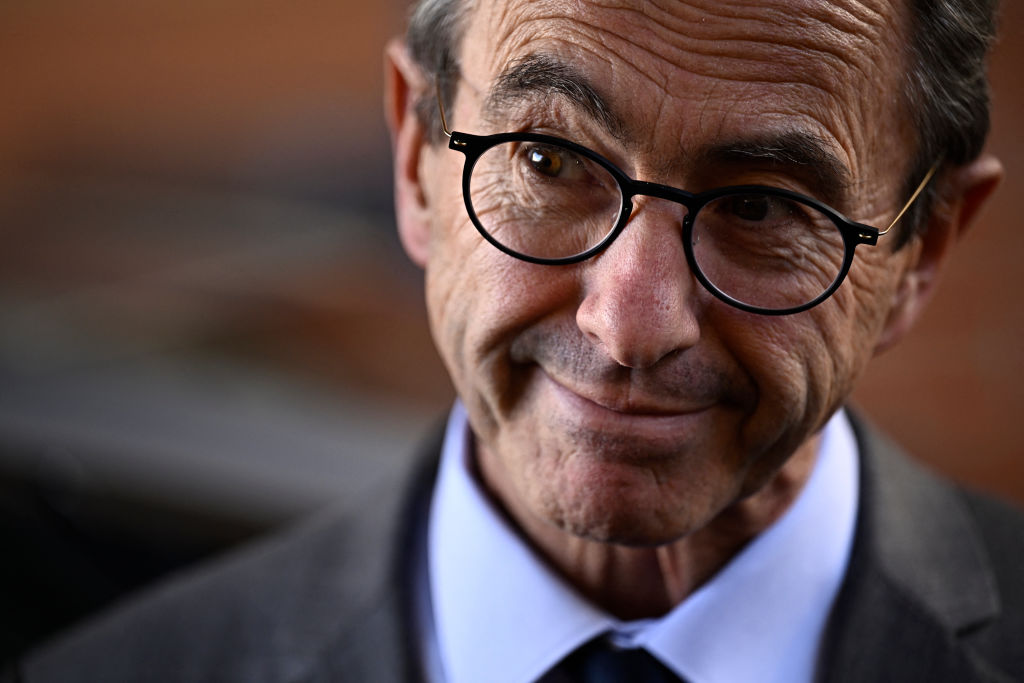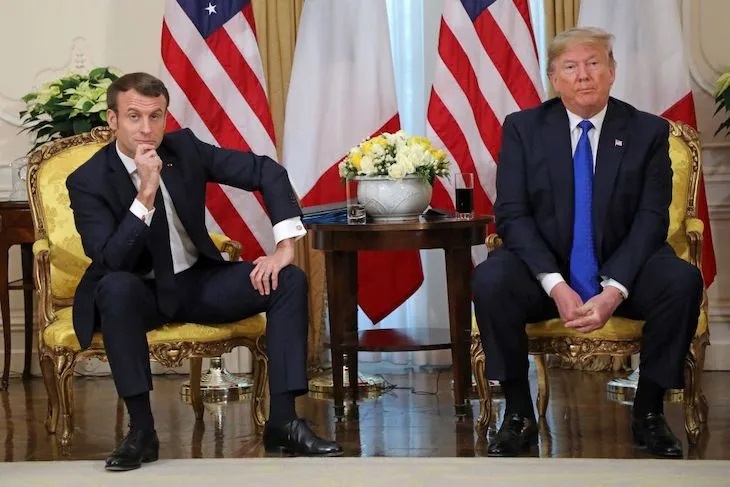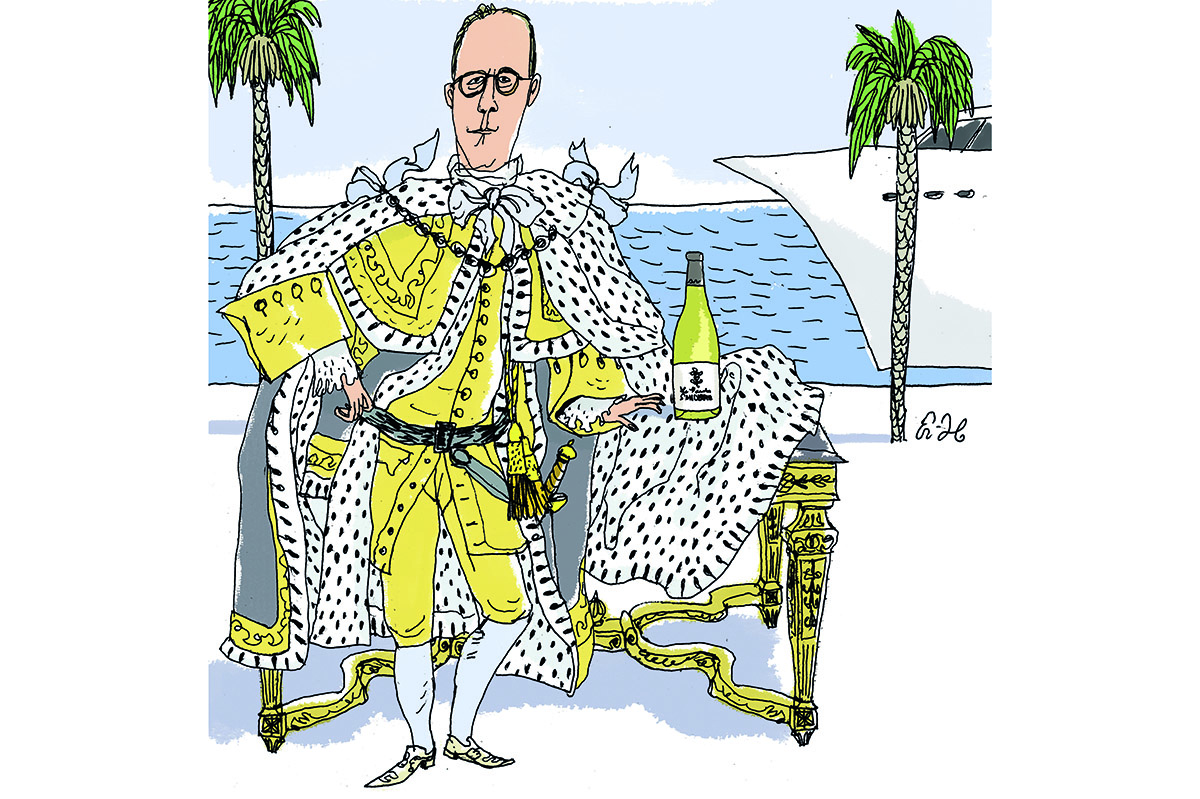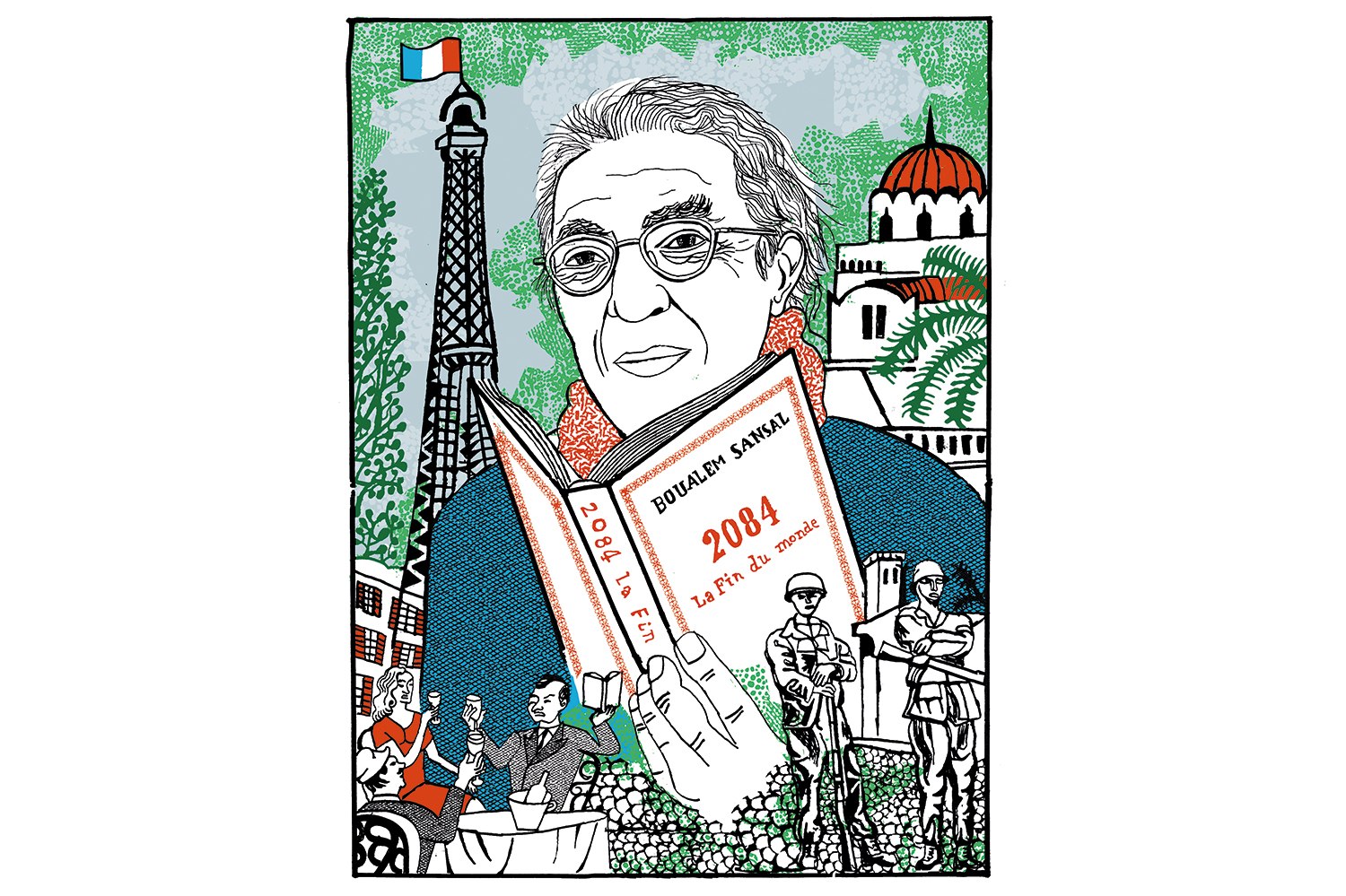It was only a few months ago that the bogeyman of the Paris elite was Jordan Bardella. Now it’s Bruno Retailleau. The sixty-three-year-old practicing Catholic may not be able to match the twenty-nine-year-old president of Rassemblement National when it comes to charisma and style, but nonetheless Retailleau has become the darling of the right since he was appointed the minister of the interior last month.
Bardella is troubled by the rise of Retailleau, as is Le Pen and everyone within Rassemblement National. The party spokeswoman, Laure Lavalette, tried to make a joke of it earlier this month, quipping that Retailleau could do her job such is their alignment on the issues of immigration, Islamism and insecurity. But behind the wisecrack there is a growing concern that the former Senate leader of the center-right Republican party has presidential ambitions.
Le Pen likes to portray herself as the anti-establishment candidate but she now has a rival
Much will happen between now and the 2027 election, but the emergence of Retailleau has caught Le Pen off guard. Appointed by Prime Minister Michel Barnier to get a grip on immigration and insecurity, Retailleau is tackling his brief with gusto.
He is in favour of a referendum on immigration; he has vowed to deport people in the country illegally; he wants to ban the Muslim Brotherhood and he has expressed his opposition to the concept of “Anglo-Saxon” multiculturalism, stating that in France “our culture is Judeo-Christian.”
These declarations have had the progressive left reaching for the smelling salts. Retailleau’s political opponents wrongly call him a “racist” while their friends in the media describe him as “far-right” or “populist.” All the while Retailleau rises in the poll because he says what the silent majority think.
That has always been the preserve of Le Pen, and the reason why her party won 126 seats in July’s parliamentary elections, more than any other single party. Retailleau’s center-right Republicans won thirty-nine seats.
The Republican Party dominated French politics at the beginning of the century. They provided two presidents in Jacques Chirac and Nicolas Sarkozy, as well as the largest number of MPs in parliament. In the 2002 election they won 357 of the 577 seats in the assembly, and Rassemblement National — or National Front as it then was — took one seat.
The Republicans have been on the slide ever since; 313 seats in the 2007 election; 194 in 2012; 136 in 2017 and sixty-four in the 2022 election.
That’s what happens when a center-right party becomes a center party.
Retailleau was one of the few Republicans who didn’t stray too much towards the center. He led the party in the senate and was the architect of the 2023 immigration bill that was subsequently watered down by the left-led Constitutional Council — with the encouragement of Emmanuel Macron.
Retailleau was apoplectic, declaring that the Council was “refusing to allow the French people to express their opinion on immigration, and is overstepping its role.”
It was announced this week that a new immigration bill will be tabled in 2025. “Nothing is off-limits, no taboos,” said Retailleau, when he was asked about the contents of the bill. The same goes for the Constitutional Council, whose growing interference in political life has been troubling the right for a while. “The rule of law is neither intangible nor sacred,” announced Retailleau earlier this month.
There is genuine conviction when Retailleau talks about his determination to restore order to France. In 2021 a friend of his, a Catholic priest called Olivier Maire, was murdered by a Rwandan refugee who should have been deported.
This gives Retailleau an authenticity among the electorate, as does the fact he was one of the few center-right politicians who voted “No” in the 2005 referendum on the EU Constitution. He did so, as he explained at the time, because he saw the direction in which the EU was heading, a technocracy “increasingly… run by experts rather than elected representatives.” If the Constitution was accepted, he declared in a Senate debate, it would “marginalize national democracies.”
The No vote triumphed in then referendum, but the political class ignored the result, ratifying the constitution when it was repackaged as the Lisbon Treaty. Retailleau voted against the treaty. This is significant. It means that Retailleau is one of the few conservative politicians who can look the electorate in the eye and say that he never betrayed them.
Retailleau’s Euroskepticism also influences his economic outlook. While he is not a protectionist and interventionist like Le Pen, who is left-wing economically, nor is Retailleau in favor of what he described in 2020 as “this European policy of unbridled free trade… Europe has penalized economic activity in favor of consumption. It’s time to rebalance.” He summed up this rebalance as “conservative liberalism with protectionist overtones.”
Economically then, as well as socially, Retailleau has strayed deep into Le Pen’s territory. But while she continues to struggle to convince the metropolitan middle-classes that she is respectable, Retailleau isn’t weighed down with historical baggage. His father is not Jean-Marie Le Pen. He does not come from a party whose founding members fought for the Nazis.
Retailleau unsettles Rassemblement National because they recall what happened a generation earlier. In the 2002 presidential election, Jean-Marie Le Pen, the then leader of the party, reached the second round after getting 4.8 million votes in the first; in the 2007 election he received 3.8 million. A million votes lost in five years, siphoned off by the tough-talking Nicolas Sarkozy.
Sarkozy turned out to be all talk and little action, which is what Le Pen hopes will be the case with Retailleau. But Retailleau is a more scrupulous and profound politician that Sarkozy, the president who committed the great Lisbon Treaty betrayal.
One of Le Pen’s inner circle admitted recently that for the moment “it’s hard to gauge Retailleau’s impact on our base. But if he starts getting results… we’ll really have to start worrying.”
Le Pen likes to portray herself as the anti-establishment candidate but she now has a rival. Macron and Retailleau can’t stand each other and the President is happy to let it be known. That will suit Retailleau. So unpopular is Macron that any enemy of his will be looked on favorably by the French.
This article was originally published on The Spectator’s UK website.


























Leave a Reply